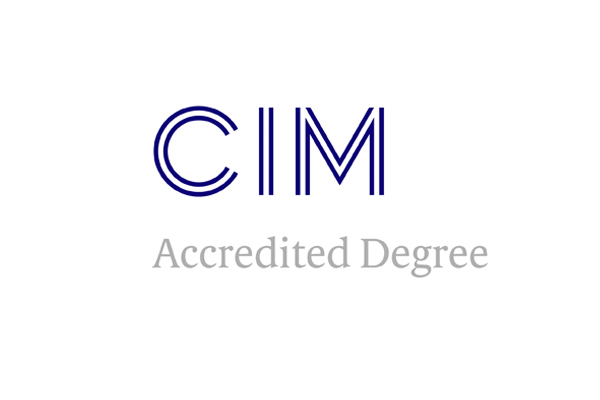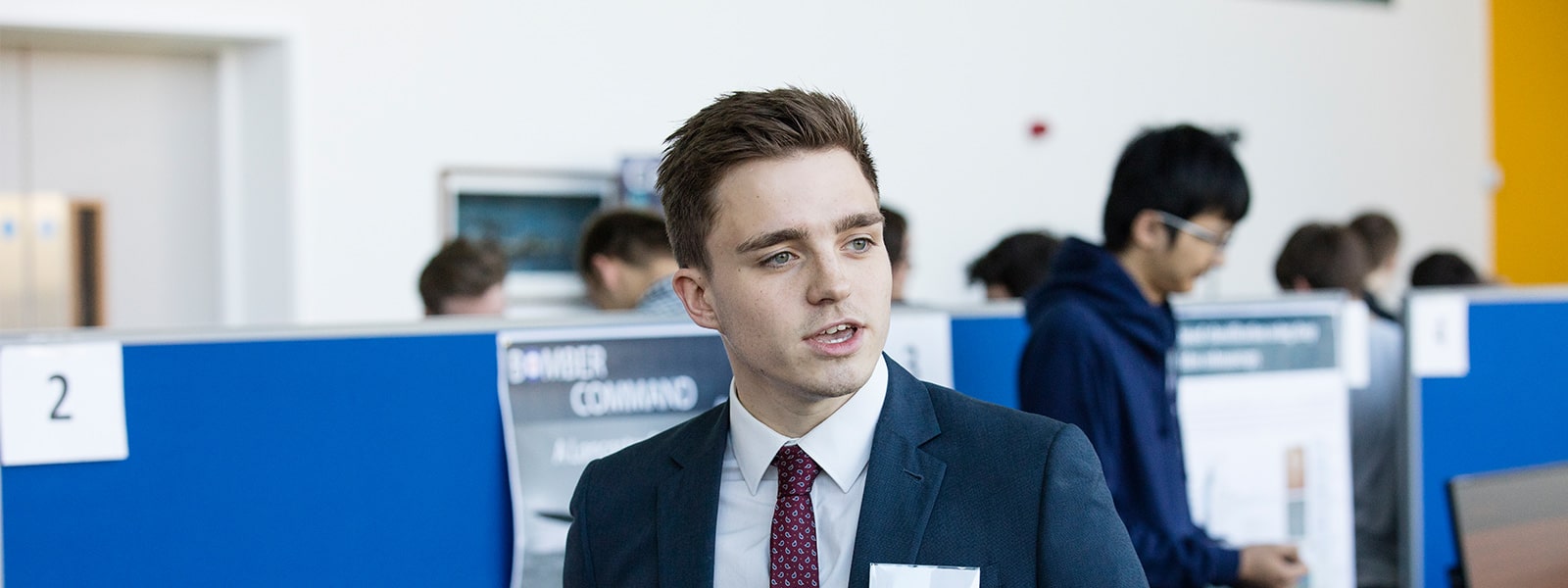Module Overview
Building on knowledge gained in first year modules on marketing and advertising, students will look at how advertising works at a number of different levels. It particularly explores issues relating to the dynamics of the advertising and media agency sector to familiarise students with the issues faced by clients and agencies in their relationship with each other and the deliverables they produce. The relationship is considered from both the agency and client perspective, developing students' understanding of the roles and functions in the process of creating advertising, with the aim to foster an appreciation of the level of detail and understanding involved to deliver effective advertising communications. Students can appraise how people respond to advertising psychologically and how this can be conceptualised. The module will cover contemporary issues in advertising, including social and ethical issues, and the breadth of traditional and digital advertising.
Module Overview
Understanding how consumers really behave has been identified as one of the fundamental issues which serve to distinguish marketing from other disciplines. This module explores the thoughts , feelings, and actions of people in the consumption process. The module is designed to equip students with the knowledge and skills to understand what consumer behaviour is, why it is important for marketers and organisations, and how to initiate customer research activities to explore the increasing complexity of customer behaviour. The focus will be around exploring how consumer attitudes and behaviours are formed and strategies adopted by marketers to influence the consumer decision-making process.
Module Overview
This is a 15 credit module that develops from ADV2014 in semester A. The overall aim for these two modules is for students to develop an understanding and awareness of advertising, from a theoretical, managerial, and practical perspective. Students build on concepts and theories of how advertising works, with further reflections on advertising creative executions and the creative contribution to the advertising process. This module fosters an appreciation of the creative aspects of advertising and students will examine the creative contribution to the advertising process, in particular what it is and who makes it, alongside considering different creative styles and techniques. Students can also learn how to present creative work to agency staff and to clients, to evaluate creative work, and to give and receive constructive feedback.
Module Overview
This module builds on the principles of the United Nations Global Compact and the ‘purpose’ of the Principles of Responsible Management Education, as well as the ‘essence’ of the World Business Council for Sustainable Development, Vision 2050, to develop the knowledge, skills, and capabilities of students to be future creators of sustainable value for business, and to work towards an increasingly inclusive society and a more sustainable global economy.
This involves rethinking and reengineering business strategies and activities, to understand organisational constructs and influences, as well as that of their ’own agency’, to be the change that produces and secures economic, social, and environmental value for current and future generations. This means systematically examining contemporary business, economic development, and the historic relationships with a ‘Eurocentric’ social-cultural construct within global commerce and management, to discover a fairer and increasingly viable future.
As a consequence, this module will ask students to explore and reflect on responsible management, sustainability, and ethical practice, as well as the resultant effects on global society, and the environmental costs created by human interaction as they analyse and evaluate contrasting strategies and approaches. This will not only provide a better understanding of the challenges of responsibly managing sustainability and ethical practice but will also identify and emphasise the questions to be addressed in respect of their future management endeavours.
Module Overview
The module places the development of marketing communications in the context of business and marketing strategies within a changing digital landscape. Theories of information processing and buyer behaviour around a target audience are explored and applied in the development of an integrated marketing communications plan (IMC). Emphasis is placed on the critique of the elements of the communications mix, the media selection, and the evaluation of the effectiveness and efficiency of communications deployed.
Module Overview
The aim of this module is to introduce students to marketing research, equip them with relevant research skills needed in the workplace and underpin the independent projects at Level 6. The module will cover aspects such as defining market research problems and the stages involved in conducting marketing research. Students will also be introduced to research philosophy and the different research approaches. The module will also provide students the opportunity to develop fundamental understanding of important research conventions such as ethical considerations and the marketing ethics code of conduct.
A crucial aspect of the module will be introducing students to quantitative and qualitative research methods and providing students with a practical approach to developing these skills. The students will be actively involved in the process and will get a chance to source secondary data, formulate a plan, conduct primary research and evaluate and present the findings. This will prepare the students and give them the necessary skills needed for their final year dissertation, consultancy and responsible enterprise projects.
Module Overview
Increasing standards of living and wealth in society has resulted in more of our income spent on services rather than manufactured goods. In a similar vein, more of the working population are earning their living from providing services. Meanwhile, traditional marketing and marketing units tend to be product based rather than reflecting the importance of the consumption of services and the implications. The more recent trend of sustainable business shifts strategic attention to building consumer relationships through various components and concepts of services marketing, putting more emphasis on fostering customer loyalty and retention.
In view of the economic and marketing trends, this module is not simply an extension of traditional marketing. It provides students with an understanding of services marketing and relationship strategies in business to prepare them for entering a broader scope of industries both within UK and international contexts. Topics currently analysed in academic research and adopted by industry will be explored to provide currency and timely application of these insights. The module will include but is not limited to exploring the environmental context of services business and the way the extended marketing mix can be used to evaluate the service environment. Principles of relational marketing will be introduced with specific focus on the development of customer retention strategies. Tactical use of services marketing will be explored to develop customer relationships that build loyalty and increase value.
Module Overview
This module builds on the theoretical concepts introduced in the Principles of Marketing module. Through a blend of theoretical and applied approaches, students undertaking this module can explore how changing macro and micro environmental influences impact and are incorporated into the marketing planning process.
Module Overview
Lincoln International Business School (LIBS) believes that an option to study overseas is a valuable educational opportunity for our students.
The optional year is intended to:
- enable students to benefit from studying similar subjects within a cross cultural environment, by exposing students to a wider academic and cultural experience;
- facilitate reflexivity in learning and personal and professional development;
- enhance their future employment opportunities by increasing their cultural and professional mobility.
This module is optional for all taught on campus undergraduate students within Lincoln International Business School. Study Abroad is a year long module which enables students to spend time studying abroad at one of the University's approved partner institutions.
During the year spent abroad, students share classes with local students and study on a suite of locally-delivered taught modules which have been approved in advance by the University. As many partner institutions support internships it is anticipated that some students will elect to combine study (minimum one semester equivalent) with work and or a period of volunteering.
Eligible students must have completed their second year of study to a satisfactory standard (normally with an average of a 2.1 or above, dependent upon partner requirements) standard and successfully completed the application process.
Upon completion of the study period abroad, each student will be required to submit a portfolio including a reflection on the experience of living and studying in a different cultural environment and the skills acquired.
Module Overview
This module is aimed at those students who have decided to take a year out of formal studies to gain accredited work experience and are registered on a degree programme with an accredited professional practice element. The Professional Practice Year aims to give students a continuous experience of full-time work within an organisation.
It should be a three way co-operative activity between employer, student and University from which all parties benefit. Students can choose to pursue a variety of options including a placement year, a consultancy project or a work-based dissertation. Potential costs relating to this module are outlined in the Features tab.
Module Overview
Students can elect to study up to 60 credits abroad at one of our partner universities , usually in the second semester. Usually students will elect to study for a semester and take 60 credits of study.
Module Overview
Students can elect to study up to 60 credits abroad at one of our partner universities , usually in the second semester. Usually students will elect to study for a semester and take 60 credits of study.
Module Overview
Students can elect to study up to 60 credits abroad at one of our partner universities , usually in the second semester. Usually students will elect to study for a semester and take 60 credits of study.
Module Overview
Students can elect to study up to 60 credits abroad at one of our partner universities , usually in the second semester. Usually students will elect to study for a semester and take 60 credits of study.










